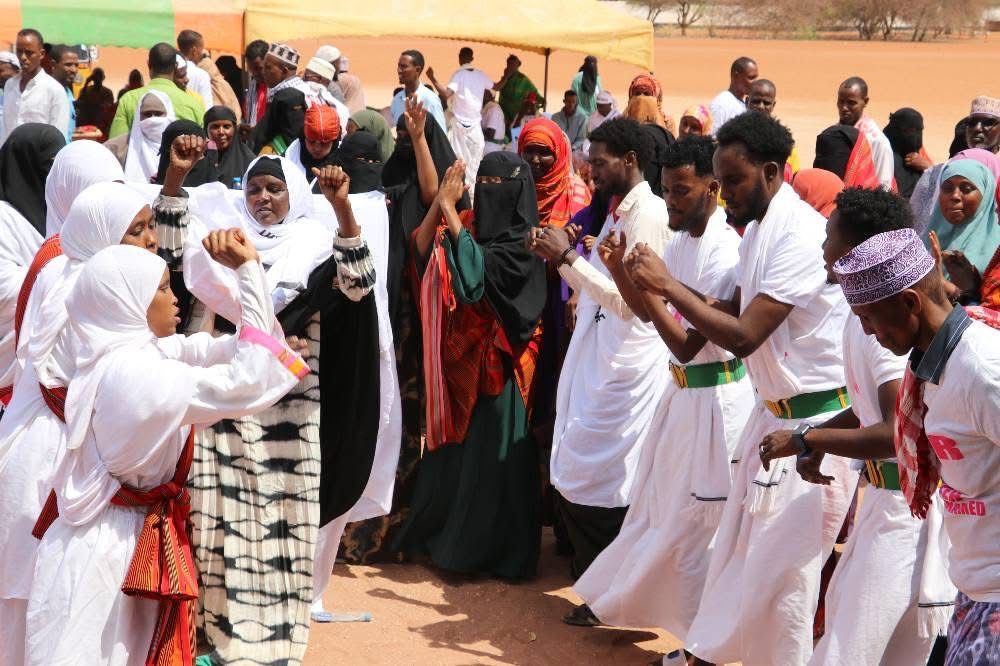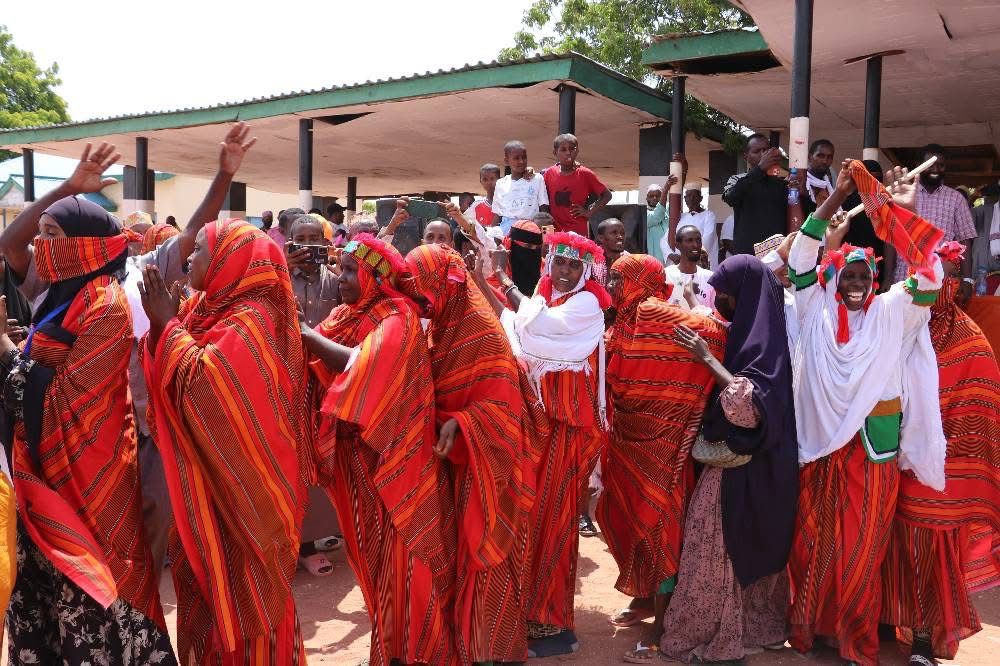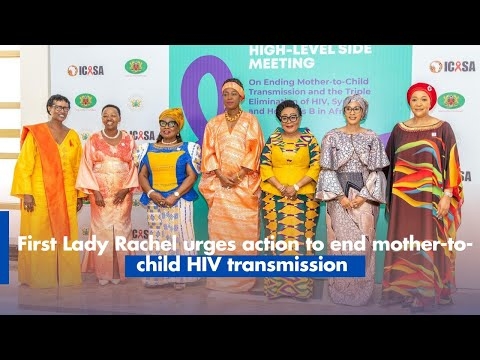 Wajir’s indigenous ethnic minorities dancing at the ceremony.
Wajir’s indigenous ethnic minorities dancing at the ceremony.
Ethnic minorities in Wajir are demanding fair representation and equitable sharing of county resources to end marginalisation.
Representatives from the Harti, Ashraf, Arabs, Leysan, Shikhaal, Barawa and other minority communities converged in Wajir town, where they sought to draw attention to what they termed long-standing marginalisation.
They spoke at an event featuring traditional dances, songs and a showcase of their traditional artefacts.
The event was graced by Moses Ole Kachike, the deputy director for Advisory and Community Liaison in the Office of the President’s Minorities and Marginalised unit.
The platform provided minority representatives with a rare opportunity to articulate their grievances and highlight the socio-economic challenges they face, including exclusion from employment, limited access to education and minimal political representation.
Sharif Hassan, representing the Ashraf community, said they have not been recognised and given a code in the national census data and are lumped with other communities as ‘others’.
Hassan expressed frustration over the persistent discrimination that has denied them access to opportunities and services.
 Wajir’s indigenous ethnic minorities at the ceremony
Wajir’s indigenous ethnic minorities at the ceremony
“We are not considered for employment and other economic opportunities both in the national and county governments. In most cases, we are left out of the recruitment exercises for the various advertised positions,” he said.
Hassan decried ethnic imbalance in resource allocation, noting that their community rarely benefits from empowerment schemes designed to support local development.
“The Ashraf community should be considered for political representation at both national and county levels. The Ashraf community should be given equal opportunities for job recruitment, scholarships, bursaries and other economic opportunities,” he said.
Mohamed Noor from the Barawa community also shared his concerns over systemic exclusion and unequal access to county resources.
“Despite their strong cultural identity and entrepreneurial spirit, the Barawa community faces several challenges such as unemployment, limited access to education and economic constraints,” Noor said.
He noted that while the Barawa have historically played a significant role in Wajir’s trade and social fabric, their potential continues to be undermined by inadequate representation and limited inclusion in county decision-making.
Speaking for the Arab community, Badar Ahmed said despite being one of Wajir’s oldest indigenous ethnic groups, they have continued to be subjected to persistent marginalisation.
“Despite our deep roots and contributions, we continue to face significant challenges that reflect broader inequalities in Kenya’s social and political systems,” Ahmed said.
“Access to public employment and leadership positions is still limited. Nepotism, clan-based politics and structural exclusion have made it difficult for qualified Arab youth to secure positions.”
The community called for equitable political representation, enhanced economic empowerment and greater access to business credit and procurement opportunities for Arab entrepreneurs and youth.
“When we ensure that every community, large or small, has a seat at the table, we affirm the spirit of our constitution and the teachings of our faith that all people are equal in dignity and in rights,” Ahmed asserted.
“Our gathering here is more than a forum for grievances; it is a declaration of visibility and an affirmation that Wajir’s progress must include all its people, regardless of their numbers or lineage,” he added.
A day earlier, the minority and marginalised communities held a colourful traditional ceremony aimed to promote unity, inclusion and cohesion.
The event, which was graced by the Principal Secretary for Culture, Arts and Heritage, Ummi Bashir, featured traditional dances, songs and a showcase of their traditional artefacts, attracting hundreds of residents.
In her speech, the PS promised to convey their message of inclusivity to both county and national governments.
She urged them to take advantage of the government’s initiatives designed to uplift youth, women and all vulnerable groups.

















